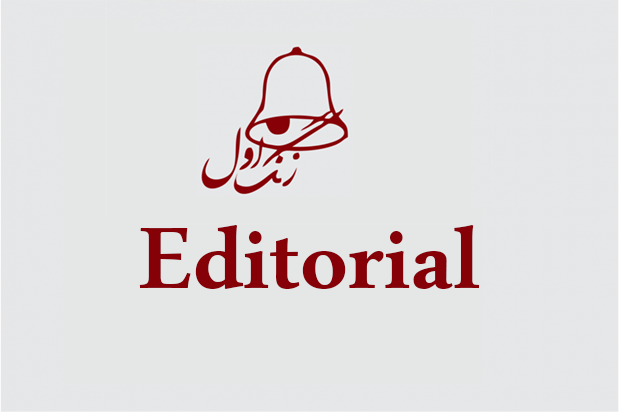Complaints about the lack of teachers and educational materials and the possibility of depriving a significant number of students of standard and appropriate education in different provinces of the country have risen sharply. The Ministry of Education has not yet taken appropriate action to address these complaints. Therefore, it is predicted that this year will be the worst year for education in Afghanistan.
Lack of teachers and educational materials are two serious problems of students in the current academic year. In addition, students in many provinces, especially in remote villages, do not have access to adequate educational space and facilities. These problems warn of a bad future for students. At the same time, the level of accountability in the government is very low. Officials are currently manipulating public opinion with the empty promises and have no viable plan to save the country’s education from this bad and chaotic situation.
According to the officials in the Ministry of Education, the Presidential Institution has not provided any new teaching positions for the country’s education since 2016. The Ministry of Finance and the Presidential Institution have not provided any plans for contract teachers and salaries for the current academic year. This situation has caused schools to face a serious shortage of teachers and students’ school hours to be wasted. Authorities in some schools have even decided to close classrooms intermittently to prevent disorder within the school.
Afghan schools have been suffering from a lack of teaching materials for years. Unfortunately, the efforts of the Ministry of Education to solve this problem have so far failed. There are rumors that school officials have given only one school book to ten students, which they have to use by taking turns. This situation is a sign of misery and regress in the country’s education sector and is very dangerous for the future of children.
On the other hand, justice is absent in the distribution of opportunities and resources in Afghanistan. In two new decisions, Ashraf Ghani has earmarked nearly 8,000 teaching positions for Nangarhar and Kandahar provinces alone. Meanwhile, in the capital, there are schools that are about to close due to lack of teaching staff. There are similar problems in other provinces and the same decision is not taken by the presidential institution to solve this problem.
If problems such as lack of teachers, educational materials, suitable classrooms and buildings are common for education in the country, these problems should be addressed equally and in a timely manner in all provinces. Designating thousands of new teachers in one province and ignoring the shortage of teachers in another are signs of discrimination in the education sector. This is completely unlikely for a president whose slogan is “every Afghan is equal to another Afghan.” Therefore, it was expected that new teaching positions for schools across the country would be provided by a decree, thus start the process of hiring formals tutor in these positions.
The Ministry of Education is obliged to review its statistics every year according to the needs of the community and to announce the list of teachers, service and administrative staff, as well as the books and facilities it needs before the start of the new school year. This will help the Ministry of Finance budget the education sector and facilitate the decision-making process for the recruitment of new teachers by the Administrative Reform and Civil Service Commission. Also, having accurate and up-to-date statistics on the needs of the education sector gives the presidency time to make a better decision and not violate the principle of fairness in this decision.
The government is expected to take seriously issues such as the lack of teachers and teaching materials for schools, and not to allow the lives of children seeking education to be wasted. Unfortunately, last year was a very bad year for the students, and due to the quarantine in the country, many students could not pursue their education. This year, along with the spread of the coronavirus in the community, the lack of teachers and educational materials should not waste the precious time of students. It is also expected that the principle of justice and fairness is not be ignored in solving these problems. Students are a great human capital for the future of Afghanistan, and their selective and unprofessional approach to their problems can be detrimental to the future of this country.












